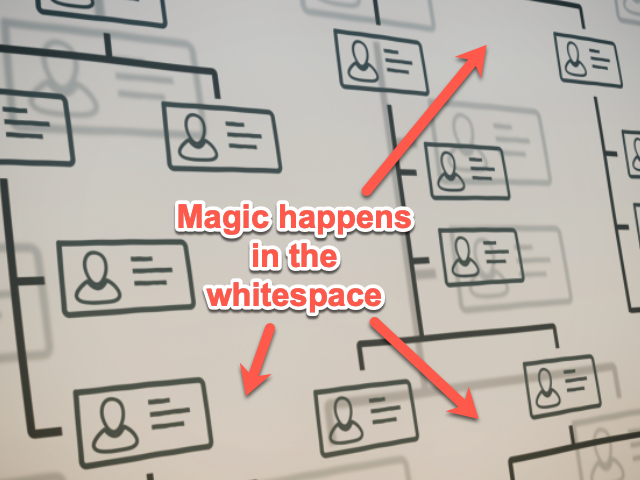Cultivating a Genuine Corporate Culture
The culture of an organization reflects the shared beliefs, core values, and practices of its members. It characterizes interactions between employees and management. As a leader, nurturing and maintaining your organization's culture should be a paramount priority. It's an ongoing endeavor that demands periodic evaluation and adjustments.
Whether intentionally sculpted or not, a culture will inevitably manifest within your organization. It's in your best interest to shape it proactively. Elements that have a foundational impact on culture include the physical office environment, attire norms, operational timings, and employee benefits. Other determinants are:
- The size of the organization, the nature of its products and services, and the incentive structures in place for employees, ranging from goal-based rewards, bonuses, and commissions to measures of customer satisfaction.
- The ways in which team members communicate, both in writing and verbally, how they interact, assist one another, and approach conflicts. Here, leadership plays a vital role. Ensuring the right individuals occupy pivotal roles is crucial to upholding and promoting the desired organizational culture.
Detrimental behaviors such as overt confrontations, hidden back-stabbing, power-grabbing maneuvers, and territorial disputes can deeply damage an organization's culture. Managers who partake in or show inconsistent, deceptive, or overly aggressive behaviors can significantly harm the cultural environment, stifling positivity and growth. There may be times when this negativity arises from unexpected sources: an ill-advised hire, a shift in roles, or other unforeseen events. As a leader, it's imperative to swiftly detect and address these issues. Upholding and protecting your organization's culture is of primary importance.
Culture Beyond the Org Chart
 An organizational chart, with its boxes and lines, outlines the formal structure, reporting hierarchy, and chain of responsibility. Yet, the essence of your organization's culture resides in the unseen spaces between these lines. This intangible realm is the heartbeat of your culture. While no single individual can claim ownership, everyone plays a part in shaping it. It's in these spaces that team members connect, share experiences, communicate, and build a sense of community.
An organizational chart, with its boxes and lines, outlines the formal structure, reporting hierarchy, and chain of responsibility. Yet, the essence of your organization's culture resides in the unseen spaces between these lines. This intangible realm is the heartbeat of your culture. While no single individual can claim ownership, everyone plays a part in shaping it. It's in these spaces that team members connect, share experiences, communicate, and build a sense of community.
The Perils of Inauthenticity

Authenticity in actions speaks volumes. Consider an experience I had with a company that introduced a pool table to their workspace, aiming to project a laid-back ambiance. On my visits, I consistently observed it untouched. Curiosity led me to inquire, revealing that employees hesitated to use it for fear of appearing unproductive. This perception stemmed from an incident where a CEO, passing by a game in progress, made a seemingly offhand remark about "slacking off." Whether in jest or seriousness, the comment deeply resonated, casting a shadow over the pool table's intended purpose. The prevailing sentiment was that the table, rather than being a genuine gesture, was merely a prop in the CEO's vision. This seemingly minor incident transformed the pool table into a glaring emblem of cultural misalignment and insincerity.
Cultivating Authenticity in Workplace Culture
To foster a truly productive and harmonious workplace culture, leaders must go beyond symbolic gestures. Here are some considerations:
- Clear Communication: Communication goes beyond spoken or written words. The actions, behaviors, and attitudes of leaders often communicate more than official memos or speeches. Ensuring that your actions align with your words is essential to avoid mixed messages.
- Feedback Loops: Establish open channels for feedback. When employees feel they can voice their opinions or concerns without fear of retribution, they are more likely to share genuine insights about the organization's culture.
- Walk the Talk: If you promote work-life balance, ensure you respect boundaries. If innovation is a company value, make space for brainstorming and encourage risk-taking.
- Recognize and Address Disconnects: Leaders should be attentive to signs of cultural disconnects, like the unused pool table. Such symbols, when misaligned with the company's true culture, can demotivate employees.
- Ongoing Education: Organize training sessions or workshops about the company's values and culture. This not only reinforces the importance of culture but also ensures everyone is on the same page.
- Lead by Example: It's not enough to talk about the importance of a positive culture. Leaders must embody the values and behaviors they wish to see in their organization.
By cultivating a culture rooted in authenticity, companies can ensure that their values are not just slogans on a wall but lived experiences for every employee.
The Impact of Employee Well-being on Culture
The well-being of employees plays a significant role in shaping the culture of an organization. A company that prioritizes the health, happiness, and growth of its team members often finds itself reaping numerous benefits:
- Enhanced Productivity: Happy and healthy employees tend to be more productive. Their positive energy can be contagious, creating an environment where everyone is motivated to give their best.
- Attracting Talent: Word spreads when a company treats its employees well. Such companies often find themselves as preferred employers, attracting top talent in the industry.
- Reduced Turnover: Employees are more likely to stay in an organization that cares about their well-being. This reduces the costs and disruptions associated with high staff turnover.
- Strengthened Team Bond: Activities that promote well-being, such as team-building exercises, workshops, or even casual outings, can strengthen interpersonal relationships among employees. This can foster a sense of camaraderie and belonging.
- Promoting Mental Health: Encouraging regular breaks, providing counseling services, or creating a safe space for open conversations about mental health can make employees feel valued and understood.
- Continuous Learning: Offering opportunities for professional development – be it through courses, seminars, or workshops – can motivate employees and contribute to personal and professional growth.
- Flexibility: Recognizing that each employee might have unique needs and offering flexible working hours or remote working options can greatly contribute to their overall well-being and satisfaction.
Incorporating employee well-being into the DNA of your company's culture isn't just a "nice-to-have" – it's a strategic decision that can drive success in today's competitive business landscape.










